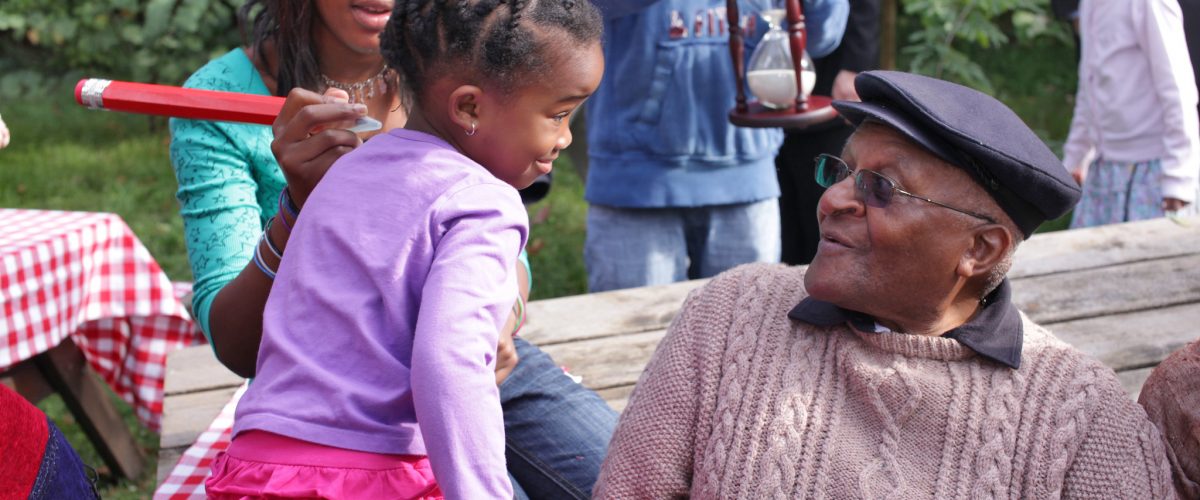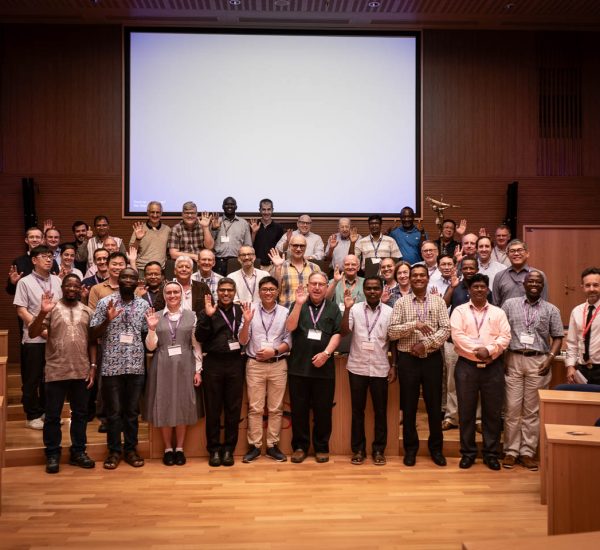On the morning of the 26th of December, the world learned with great sadness, of the demise of the Anglican Archbishop Emeritus of Cape Town, Desmond Mpilo Tutu. “The Arch,” as he was fondly known, died in Cape Town at the age of 90 after battling with cancer for some years. As a teenager, he had a close brush with death when he contracted tuberculosis and was hospitalized for about eighteen months. He once remarked that since then, he was living his bonus years because he could have died young.
The death of this courageous, ebullient ambassador of the gospel, anti-apartheid campaigner who continued to fight injustices even beyond his native South African shores, not only marked the loss of the last surviving South African Nobel Peace Prize laureate, but also leaves the world a poorer place. A courageous moral beacon has fallen. Very few are brave enough to speak truth to power out of their religious conviction. The Arch, was neither shy nor timid to speak out against all forms of injustices or unfairness. He once said:
“I will continue to speak out for justice and fairness until I die…If I were to stop, I’d regard it as a renunciation of God.”
It was this conviction that also stimulated him to equally criticise, sometimes harshly, the African Nation Congress (ANC) government when it strayed from the values of common good and human dignity for the people. He was never afraid to speak sternly against corruption and injustice. “I really am warning you out of love. I am warning you like I warned the nationalists. I am warning you. One day we will start praying for the defeat of the ANC government. You disgraceful!” This warning cost him a lot and gained him some enemies in the ANC. Many however, understood that he was just being the moral compass that he was. One former leader remarked that “he (Tutu) tried hard to make us all better people.”

Archbishop Tutu was indeed a man of God who completely committed himself to the principles of common good, solidarity with the poor and marginalised, the rights of the oppressed, including women, children and the LGBTI+ community. His dedication to these principles, emanated from the conviction that we are all created in the image of God whose children we are. He was often quoted as saying that God was not God of a particular race or people. God was God of us all. He was a man of strong ethical, moral and religious values that made him the icon he was, uncompromising in his principles and beliefs.
As a teenager, my first two years of high school education were spent just few hundred meters from the Mandela and Tutu family houses on the now famous Vilakazi street in Orlando West, Soweto. I don’t think at that time I even knew who my Catholic bishop was, but I definitely knew about the then first Black Anglican bishop of Johannesburg, Desmond Mpilo Tutu. I didn’t know about him because of the prestigious Nobel Peace Prize that he had won in 1984 during my last year in primary school; I knew of him because he was that fearless religious leader who became the voice of the voiceless South Africans who, during the turbulent times in our township and many other townships of South Africa, were subjected to the injustices and atrocities of apartheid.
With almost all political parties that opposed apartheid, silenced, banned and their leaders being either incarcerated or having taken refuge in other countries, Desmond Tutu remarked, “I wish I could shut up, but I can’t, and I won’t.” He became the political leader by default, as was noted by the Catholic Archbishop of Johannesburg Buti Tlhagale who was Tutu’s student and briefly worked with him at the South African Council of Churches (SACC). He filled that vacuum of political leadership with bravery and magnanimity. During the late 1970s and 1980s, every year Regina Mundi Catholic Church in Soweto, hosted commemorations of the 16 June 1976 Soweto uprisings, a day when many students were shot at and killed by the police when they were peacefully protesting against the injustices of apartheid. Despite the commemorations being declared illegal by the apartheid government, Tutu was always there to address the masses at those gatherings that always ended with confrontations with the police and teargas in the air.

He was a compassionate leader with the conviction that justice should be accompanied by mercy and forgiveness. On more than one occasion during some of the political gatherings, Tutu was seen intervening in the nick of time, to save suspected police informers from enraged masses who wanted to kill these informers. In 1985, in Duduza township east of Johannesburg, he saved one such alleged informant when an infuriated crowd wanted to set him alight.
During the Truth and Reconciliation Commission (TRC) hearings, he was often seen crying, sometimes inconsolably, when he heard stories of the atrocities committed by the apartheid security forces on those who were actively opposing the system. It was clear that he felt the pain of others and moved to tears by their suffering under the evil system of apartheid. As a chairperson of the TRC, he undertook the mission of not only unearthing the truth of the apartheid crimes, but also endeavoured to reconcile a nation that was virtually irreconcilable.
He was determined and uncompromising in his mission and conviction of reconciling and uniting the Rainbow Nation, as he often referred to the people of South Africa. In 1997 the TRC had to deal with the case of the late struggle icon Winnie Madikizela-Mandela and the alleged human rights violations carried out by the Mandela football club in the 1980s. It was one of the difficult cases as it involved not only a struggle icon but also a personal friend. He magnanimously handled the case demonstrating that whether friend or foe, the mission of reconciliation and justice could not be compromised. In the spirit of Ubuntu coupled with his religious conviction and his belief in the Rainbow Nation, Tutu was hopeful that national reconciliation was not an impossible goal. A prisoner of hope, as he saw himself, he once commented that “hope is being able to see that there is light despite all of the darkness.”
His death truly marks the end of an era of exceptional ethical and moral leadership. Consequently, his passing leaves us all with a challenge and with an inspiration for our generation to have its own moral giants and leaders who hold strong values influenced by faith and social justice like the Arch. Through his actions and being vociferous against injustices, he has undoubtedly inspired many. One is challenged and equally motivated by his remark:
“If you are neutral in situations of injustice, you have chosen the side of the oppressor. If an elephant has its foot on the tail of a mouse, and you say that you are neutral, the mouse will not appreciate your neutrality.”
He will be remembered as a leader who actively and fearlessly opposed injustices with the conviction that each one could make a difference by doing their bit of good wherever they were because those little bits of good, put together, made the world a better place. The Arch was a person who understood very well that evil will always flourish when good people did nothing.




